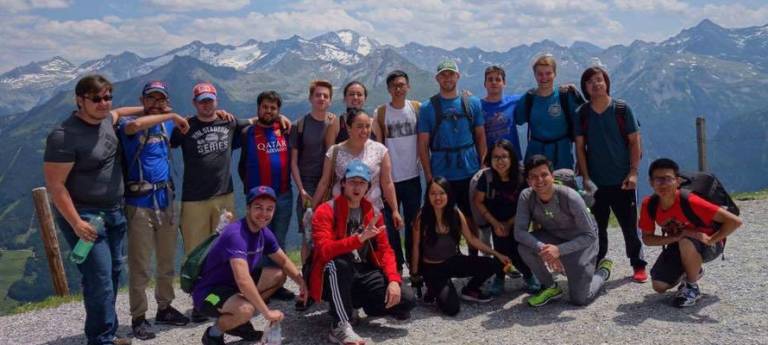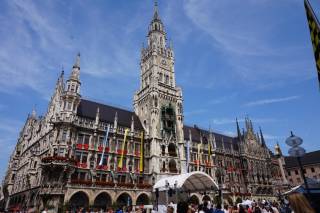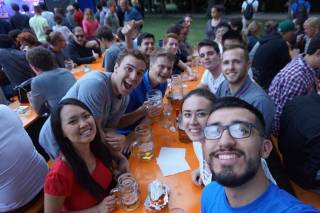Technical University of Munich
21 February 2019
Eva Aw, a second year MSci Physics student joined the excellently named Finding Nano Programme at the Technical University of Munich where the focus of the programme is nanoscience, research and industry in Germany. As part of the programme, Eva also had the chance to undertake a

Eva Aw, Physics
In the Summer 2017, I have participated in the “Finding Nano Summer School: Nano-science, Research and Industry in Germany” at the Technical University of Munich (TUM) for 6 weeks. As a Physics undergraduate student at UCL with a great interest in nanotechnology, this summer school was a perfect complement to my Physics degree and also provided me with a great insight in the research of nanotechnology, which goes well with my career aspirations.
Personally, I have always intended to study in Germany as many great physicists had achieved their scientific successes there. So, what was so great about this summer school? First of all, being able to experience a different education system at a top university in Germany was a very positive, eye-opening experience for me. Throughout the programme, I had attended 30 hours of nanoscience lectures, with a credited exam at the end. This enabled me to understand the operation of things in the nano-world, such as the electronic transport in 3, 2, and 1 quantum dimension, structures of semiconducting nanomaterials, bioelectronics, nanomaterials for energy production and so much more! Besides the lectures, I was also trained to write cover letters and to polish my CV tailored for careers in Germany.
One thing that excels at TUM is having an incredibly huge research institute for nanotechnology called the “Walter-Schottky-Institute”, flanked by its own neutron reactor research centre, located in the outskirts of Munich. Here, the summer school students were split into groups and received practical training in different laboratories. My laboratory project involved the use of nanoimprinting technology. Working with another peer, we fabricated our own nano-sized imprinted stamps onto glass wafer and silicon wafer using UV imprint and thermal imprint respectively. The project was carried out in a “clean room”, which required us to wear oversized full-body lab coats. It may have looked hilarious on me, but working in the clean environment was super cool! The most challenging task that we had to complete was to present our results to our peers with an allocated preparation time of a day. Nevertheless, we managed to overcome our time constraint through perseverance and passion. I was extremely satisfied with my laboratory project which had encouraged me to further pursue on nanoimprinting technology, if given a research opportunity at UCL next summer.

Although the medium of teaching in the lectures was English, we were also taught the German language for 40 hours throughout the programme. Within those 6 weeks, my German language skill and cultural knowledge of Germany were significantly improved. Furthermore, the summer school provided us with numerous visits not just in Munich, but also trips to neighbouring cities. This included the BMW manufacturing site, industrial sites, Deutsches Museum, Bavarian Orchestra, day trips to Regensburg and Salzburg, weekend hike in Bad Gastein (the Austrian Alps), just to name a few.

Finally, this summer school would not be complete without meeting interesting new friends with multidisciplinary backgrounds from various countries, such as America, Mexico, Spain, Hong Kong and China, where several of them even visited me in London after the summer school had ended. As the saying “Work hard, play hard” goes, we would often find ourselves enjoying a few glasses of beer in the beautiful Englischer Garten after an intensive lecture. During our free time, we toured around the historical city centre of Munich, visited the Allianz Arena, home stadium of the FC Bayern Munich football team and also spent a weekend in Prague.
I would strongly recommend the students who are considering a short-term study abroad opportunity to go for it! In addition to the provided accommodation, transportation, and weekdays lunch from the summer school, the financial aid from UCL Study Abroad Short Mobility Bursary allowed me to make the most of the trip and take every opportunity to learn and explore, without worrying about my everyday living expenses. I am extremely grateful for UCL and glad that UCL is actively encouraging students to apply for summer programmes. Being in the Finding Nano Summer School was definitely an experience of a lifetime for me!
 Close
Close

